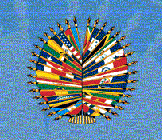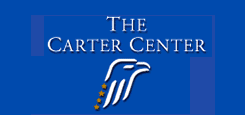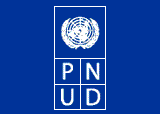PUBLIC AI Index:
AMR 53/003/2004
UA 98/04 Fear for safety/use of excessive force 04
March 2004
VENEZUELA Protestors in civil disturbances
The security forces have reportedly used excessive
force, and detained large numbers of opposition
supporters, during nationwide street protests
against the government of President Hugo Chavez.
At least nine people have died and scores of
others have been injured, including a number of
police officers. Amnesty International is
concerned that there may be further politically
motivated violence, and disproportionate police
response.
The main opposition grouping, the Coodinadora
Democrática, claim that up to 350 supporters have
been detained around the country, with police
allegedly fabricating evidence against a number of
protest leaders. The authorities claim the figure
is considerably lower, and those detained had
participated in or incited violent protests. They
have accused opposition leaders and activists of
fomenting the violence in an attempt to force the
President from office. The authorities have a
responsibility maintain public order should also
ensure that fundamental human rights are respected.
Amnesty International is concerned at reports that
the security forces have used excessive force on
some occasions and failed to follow correct
procedures for detention, and that these
allegations are not being adequately investigated.
The street protests began on 27 February after
news in the run up to the announcement of the
Consejo Nacional Electoral (CNE), National
Electoral Council's decision that many signatures
on an opposition-sponsored petition for a "referendum
revocatorio" ("recall referendum") to force
President Chavez to resign, must be re-authenticated.
The opposition required 2.4 million signatures for
the petition to succeed in triggering the
referendum vote, and claim they collected 3.2
million, but the electoral authority recognised
only 1.8 million.
Since then there have been frequent confrontations
between opposition supporters and the National
Guard in many different parts of the country.
While a number of demonstrations have reportedly
been violent, with protestors using firearms and
other weapons, the National Guard and the
Direccion de Inteligencia Seguridad y Prevención (DISIP),
internal security agency, have allegedly used
excessive force to control the situation on a
number of ocassions. In the capital, Caracas, at
least 47 detainees have been brought before a
judge and placed in pre-trial detention on charges
such as "resisting arrest" (resistiencia a la
autoridad) and "inciting crime" (instigación a
delinquiar). However, many others detained around
the country appear not to have been brought before
a judge within the legal time limit.
BACKGROUND INFORMATION
Hugo Chavez was elected president of Venezuela in
1998 and re-elected in 2000 for a six year term.
There has been increasing polarization and
repeated political violence since 2001, when an
opposition movement began to gain strength. In
April 2002 at least 50 people died during a failed
coup when President Chavez was forced from power
for three days. At the end of 2002 a general
strike called by the opposition had a dramatic
impact on the economy, but failed to force the
President from power. Internationally sponsored
negotiations led to a agreement in May 2003
committing both sides to seeking a "constitutional,
peaceful, democratic and electoral solution" to
the crisis. The National Electoral Council's
decision on whether to accept the validity of
sufficient signatures gathered by the opposition
to trigger a recall referendum on President Chavez
had been pending since the end of 2003.
The policing of public demonstrations has
frequently resulted in human rights violations by
the police and security forces in Venezuela over
the last 15 years. The authorities have
consistently failed to investigate and punish
officials responsible for abuses or effectively
implement United Nations guidelines on the use of
force or firearms. Incidents of political violence,
attributed to both government and opposition
supporters, during President Chavez's
administration, such as the deaths and injuries
during the attempted coup of 11 April 2002, have
not been investigated effectively and have gone
unpunished. The impunity enjoyed by the
perpetrators encourages further human rights
violations in a particularly volatile political
climate.
http://web.amnesty.org/library/Index/ENGAMR530032004?open&of=ENG-VEN


